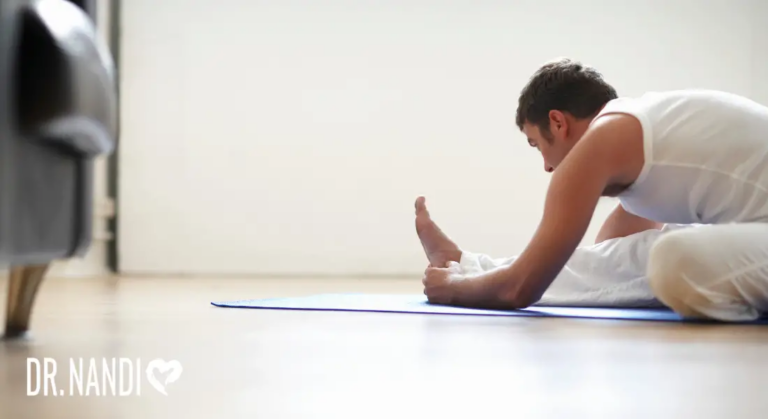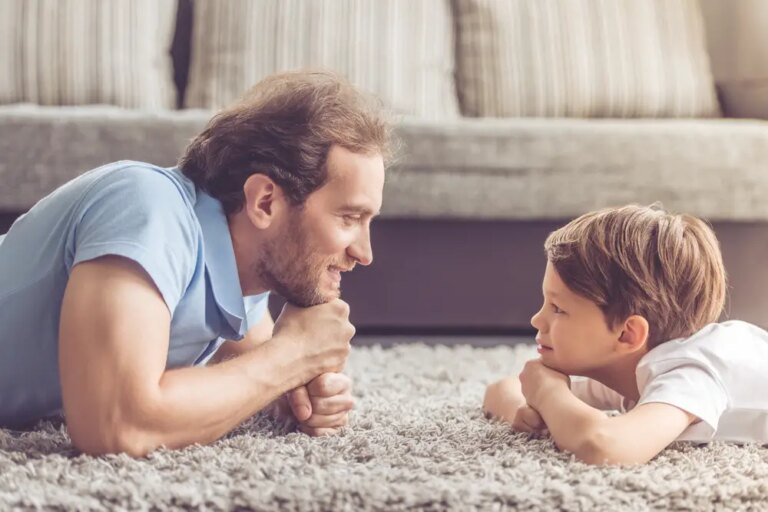The gut-brain connection has become a central topic in health discussions, drawing attention to how the gut influences not only digestion but also mental wellness. Far more than a simple digestive organ, the gut hosts a bustling community of bacteria known as the gut microbiome. This microbiome – collectively weighing around two kilograms, even heavier than the average human brain – plays a crucial role in breaking down food, bolstering immunity, and surprisingly, affecting mood and emotional health.
This intricate gut-brain relationship has captured researchers’ attention, especially as studies reveal the importance of the gut-brain axis – a direct communication pathway between the digestive system and the brain. Connected by the vagus nerve, this “information superhighway” enables two-way communication, meaning that feelings and emotions can affect gut function, and vice versa. This fascinating link might help explain why emotions can trigger physical responses, such as feeling stomach discomfort during stressful events.
Focus and Memory
The gut-brain connection significantly affects cognitive functions such as thinking, focus, and memory. This influence is largely mediated by the vagus nerve, the longest nerve of the autonomic nervous system, which extends from the brainstem to the abdomen and acts as a communication superhighway between the gut and the brain. Neurotransmitters and other signaling molecules produced in the gut can affect brain function, including cognitive processes necessary for focus and memory.
Research shows that certain gut bacteria can produce short-chain fatty acids (SCFAs) like butyrate, propionate, and acetate from the fermentation of dietary fibers. These SCFAs help maintain the health of brain cells and have anti-inflammatory properties that are crucial for cognitive function. A 2022 study in Neurology demonstrated that higher levels of SCFAs were associated with better performance on cognitive tests in older adults. Furthermore, the gut microbiome can influence the integrity of the blood-brain barrier, which protects the brain from harmful pathogens and regulates the transport of essential nutrients that support cognitive functions.

Risk of Neurodegenerative Disorders Like Alzheimer’s and Parkinson’s
In neurodegenerative diseases, chronic inflammation is a common pathological feature. Gut microbes can produce various compounds, including SCFAs and other inflammatory mediators, that can either promote or reduce inflammation. For instance, an imbalance in gut microbiota (dysbiosis) can lead to increased levels of harmful bacterial metabolites and decreased production of protective compounds like SCFAs. This dysbiosis can exacerbate systemic inflammation, which, over time, can contribute to neuroinflammation, a hallmark of neurodegenerative diseases.
Moreover, alterations in the gut microbiota composition have been observed in patients with Parkinson’s and Alzheimer’s disease, suggesting that the gut microbiome might not only influence disease pathogenesis but could also serve as a potential target for therapeutic intervention. Studies have reported that patients with Parkinson’s disease have distinct microbiome compositions, which are associated with the severity of their motor and non-motor symptoms.
Mood Disorders
The gut-brain axis is a two-way communication network that includes the central nervous system (brain and spinal cord) and the enteric nervous system (the “second brain” of the gut). Research has illuminated how this connection is pivotal not just for physical health but also for mental well-being. In the context of mood disorders like depression and anxiety, the gut plays a critical role by influencing the production and regulation of key neurotransmitters like serotonin and dopamine, which are essential for mood regulation.
Approximately 90% of the body’s serotonin, a neurotransmitter that helps regulate mood and anxiety, is produced in the gastrointestinal tract. The gut microbes help in its production, and any imbalance in these microbes can lead to a serotonin deficiency, potentially resulting in mood disorders. Studies have found that individuals with depression have significantly different gut bacterial compositions compared to their non-depressed counterparts.

Your Stress Response
The gut microbiota influences the brain’s response to stress through several direct and indirect pathways. One key player in this process is the vagus nerve, which as mentioned acts as a direct communication route from the gut to the brain. When stress disrupts the balance of the gut microbiome, it can lead to the production of inflammatory cytokines. These cytokines can activate the vagal nerve pathways, altering neurotransmitter levels in the brain and impacting the hypothalamic-pituitary-adrenal (HPA) axis, the body’s central stress response system. An activated HPA axis releases cortisol, a stress hormone that, when chronically elevated, can lead to various health issues, including anxiety and depression.
Additionally, gut bacteria can produce neurotransmitters such as serotonin and gamma-aminobutyric acid (GABA), which are crucial for regulating mood and stress responses. Under stress, the composition and function of these microbiota can change, altering the levels of these neurotransmitters and thereby influencing the brain’s capacity to cope with stress.
The gut microbiota also plays a role in forming the metabolites that influence the permeability of the blood-brain barrier (BBB). A disrupted BBB can allow harmful substances to enter the brain, exacerbating the stress response and potentially contributing to neurological conditions.
Lifestyle and Dietary Approaches to Support Gut Health
Supporting the gut-brain connection goes beyond just managing stress – it also involves lifestyle and dietary adjustments that promote a balanced microbiome. Research has shown that certain foods and practices can nurture gut health, reducing inflammation and potentially supporting mental wellness. One highly recommended approach is a Mediterranean-style diet, known for its emphasis on whole, unprocessed foods. This diet includes ample servings of good-quality proteins, such as fish and lean meats, rich in amino acids that are crucial for the production of neurotransmitters like serotonin.
A diet rich in seasonal fruits and vegetables, especially leafy greens, provides antioxidants and magnesium, which support both the gut and nervous system. These nutrients help to reduce oxidative stress and inflammation, fostering an environment in which beneficial gut bacteria can thrive. Fermented foods like yogurt, sauerkraut, kimchi, and kefir are also helpful as they contain probiotics, the “good” bacteria that replenish and maintain gut health. For individuals experiencing symptoms like brain fog, anxiety, or low mood, adding probiotic-rich foods or supplements may help improve both digestive and mental well-being.
In addition to dietary adjustments, certain lifestyle habits can strengthen the gut-brain axis. Regular physical activity, for instance, has been shown to improve gut health by promoting microbial diversity. Gentle forms of exercise, such as walking, yoga, or stretching, are particularly beneficial, as they can reduce stress without excessively raising cortisol levels, which can otherwise negatively impact gut health. Breathing exercises and mindfulness practices, such as meditation, are also recommended for their ability to activate the vagus nerve, which plays a vital role in stress regulation and digestive function.
By integrating these dietary and lifestyle habits, individuals can foster a balanced microbiome that supports mental resilience and physical health. These practices can help create a stable foundation, nurturing both the gut and brain, and helping individuals to thrive in daily life.
My Personal RX on Supporting the Gut-Brain Connection
Maintaining a healthy gut-brain axis is pivotal for cognitive and emotional health. A well-balanced gut microbiota supports the efficient functioning of the brain through multiple pathways, including the production of key neurotransmitters and the modulation of the body’s stress response. Enhancing gut health through targeted choices can significantly influence mental clarity, mood stability, and overall brain function. This holistic approach underscores the importance of considering our gut as a critical component in achieving optimal mental and neurological health. By nurturing our gut microbiota, we harness a powerful ally in the pursuit of wellbeing and resilience against mental and neurological disorders.
- Prioritize a Diverse Diet: Include a variety of fruits, vegetables, whole grains, and lean proteins in your meals to provide the fiber and nutrients essential for a thriving microbiome.
- Incorporate Fermented Foods: Foods like yogurt, kimchi, and sauerkraut contain natural probiotics that can help maintain a healthy gut flora.
- Try a High-Quality Probiotic Supplement: Consider a targeted supplement, such as MinBiotic, designed to support the gut-brain axis with a blend of probiotics, prebiotics, and the adaptogenic herb Ashwagandha KSM 66.
- Get Moving: Regular, gentle physical activity, like yoga or walking, can help regulate digestion and reduce stress.
- Practice Deep Breathing: Breathing exercises can stimulate the vagus nerve, aiding in relaxation and supporting the gut-brain connection.
- Stay Hydrated: Proper hydration supports all bodily functions, including digestion and mood regulation.
- Educate Yourself: For those interested in a deeper understanding, I recommend reading Heal Your Gut, Save Your Brain, a comprehensive guide to the science behind the gut-brain axis and how to improve both gut health and mental wellness.
- Limit Processed Foods: Processed foods often disrupt the microbiome and lead to inflammation, so aim for whole, unprocessed foods whenever possible.
- Consider Magnesium-Rich Foods: Foods like leafy greens, nuts, and seeds are high in magnesium, which is vital for the nervous system and can reduce stress and inflammation.
- Mindfulness Practices: Incorporate meditation or journaling into your routine to reduce stress, supporting both your mind and digestive health.

Sources:
- Meyer, K., Lulla, A., Debroy, K., Shikany, J. M., Yaffe, K., Meirelles, O., & Launer, L. J. (2022). Association of the gut microbiota with cognitive function in midlife. JAMA Network Open, 5(2), e2143941. https://doi.org/10.1001/jamanetworkopen.2021.43941
- Kumar, A., Pramanik, J., Goyal, N., Chauhan, D., Sivamaruthi, B. S., Prajapati, B. G., & Chaiyasut, C. (2023). Gut microbiota in Anxiety and Depression: Unveiling the relationships and management options. Pharmaceuticals, 16(4), 565. https://doi.org/10.3390/ph16040565
- Liu, L., Wang, H., Chen, X., Zhang, Y., Zhang, H., & Xie, P. (2023). Gut microbiota and its metabolites in depression: from pathogenesis to treatment. EBioMedicine, 90, 104527. https://doi.org/10.1016/j.ebiom.2023.104527
- Heravi, F. S., Naseri, K., & Hu, H. (2023). Gut Microbiota Composition in Patients with Neurodegenerative Disorders (Parkinson’s and Alzheimer’s) and Healthy Controls: A Systematic Review. Nutrients, 15(20), 4365. https://doi.org/10.3390/nu15204365



















